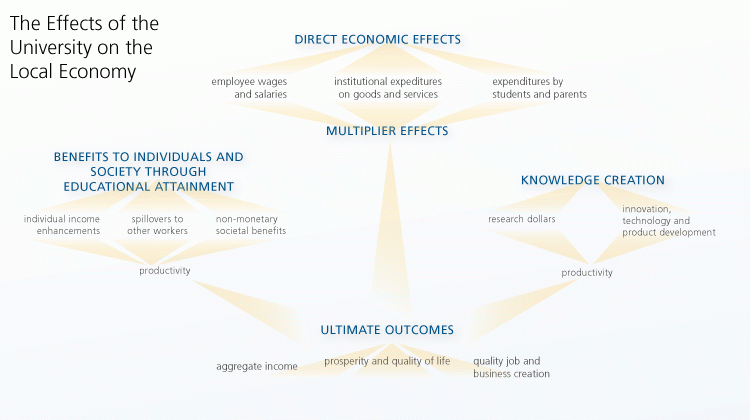Economic activity in the global economy has become increasingly knowledge based, and the distribution of income is shifting in favor of educated and skilled workers, innovative firms, and regions with clusters of high-technology firms. The importance of knowledge is apparent in the earnings premium received by college-educated workers, which is now at a historic high. To sustain a competitive advantage in the global economy, firms must constantly innovate and differentiate their products or lose market share to low-cost developing countries. Intangible assets such as intellectual property are increasingly visible in the balance sheets of corporations. After a century of convergence, levels of prosperity are diverging across regions, with the most prosperous locations being home to agglomerations of innovative firms and succeeding in attracting highly educated workers and their families.
As institutions of higher education and centers for advanced research, universities play an important role in determining the success of regions and nations in a knowledge economy. Advanced economies have run into diminishing returns in the accumulation of physical capital and greater labor force participation. Economists now consider knowledge creation to be the main engine for long-term economic growth. Among the four pillars necessary for a country to fully participate in the global knowledge economy, The World Bank lists a highly educated population and systems of innovation in which universities play a central part.
This portion of the Office of the University Economist’s website provides a summary of recent scholarly research on the importance of universities for the labor market success of individuals, the pace of industrial innovation, and the prosperity of cities and regions. There are five individual chapters, each containing a brief narrative summarizing important conclusions and issues and a substantive annotated bibliography.






